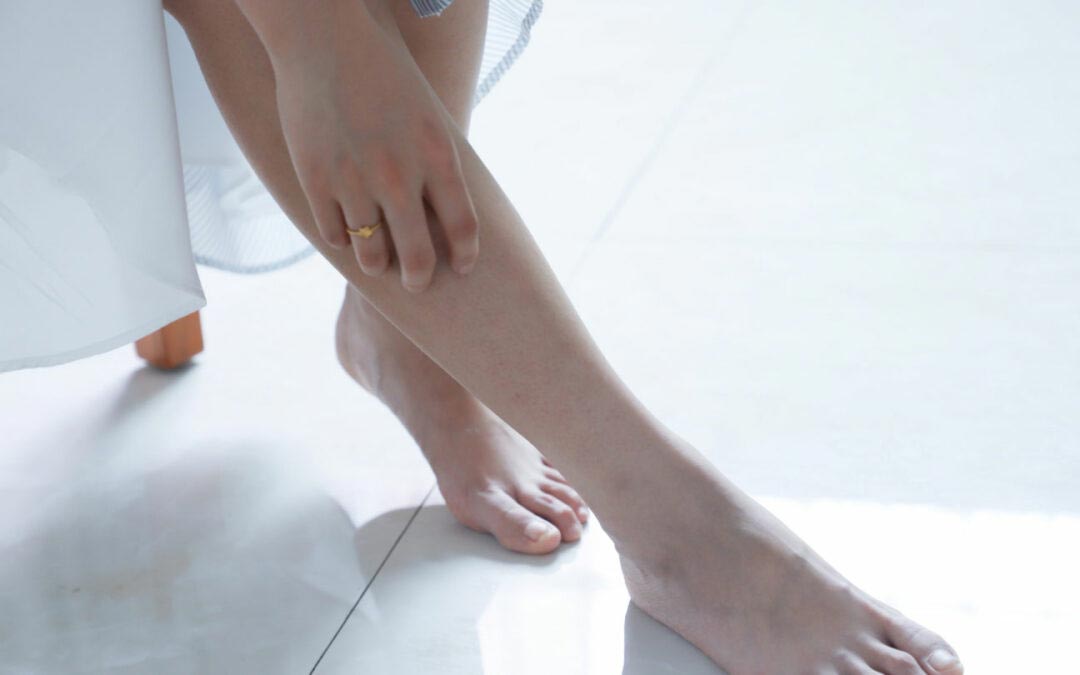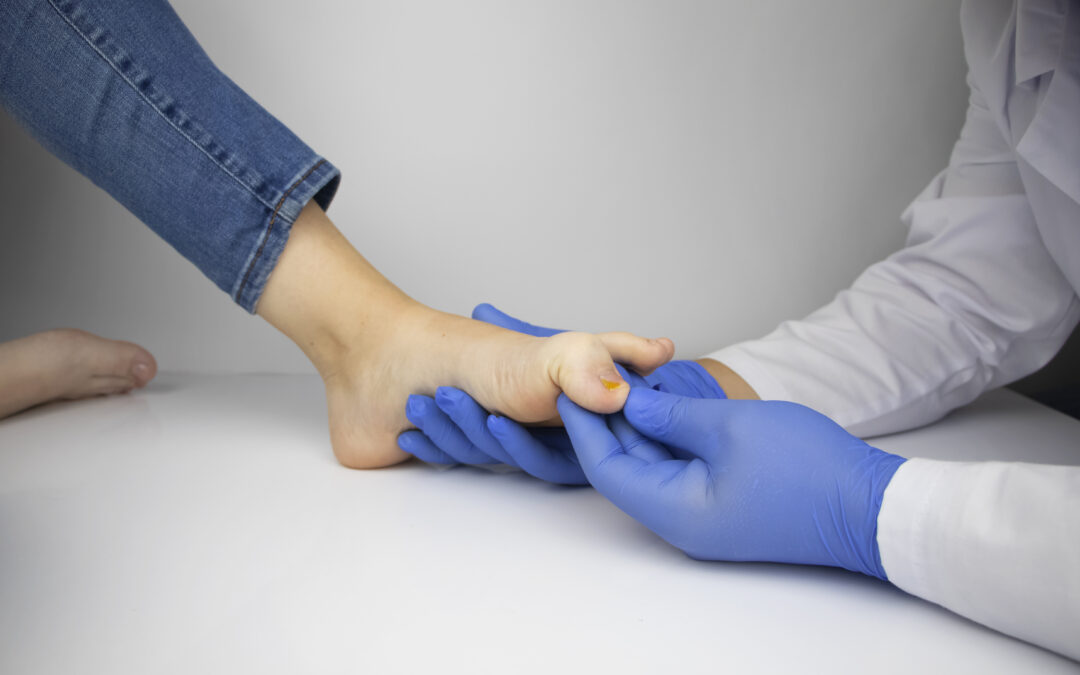Did you know your feet can show early warning signs of diabetes? This is one of the reasons a podiatrist plays an important role in diabetic foot care. A podiatrist may notice the hallmarks of diabetes before you even know you have it.
As you manage your diabetes over time, a podiatrist can provide vital advice and health care that keeps your condition under control. Here’s a closer look at the relationship between diabetes and your feet.

What to Look For
9 Diabetes Warning Signs in the Foot
Pay close attention to any changes in the condition of your feet. Common foot-related diabetes warning signs include:
- Color changes in the skin
- Swelling in the foot or ankle
- Numbness anywhere in the foot, including the toes
- Leg and ankle pain
- Open and slow-healing sores
- Ingrown toenails
- Fungus and infections
- Bleeding corns and calluses, blisters, and bunions
- Cracks and extreme dryness, especially in the heel
If you have one or more of these signs, contact your podiatrist for an evaluation. Podiatrists are trained extensively in understanding the connections between diabetes and the feet.
Why Does Diabetes Damage the Feet?
When you have diabetes, your body does not manufacture or process insulin efficiently. As you take in sugars and starches, your body will struggle to cope with their impact on the body and tend toward high blood sugar, also known as hyperglycemia.
Over time, diabetes can damage the systems and organs of the body. You may have problems with your kidneys, heart, nerves, and eyes.
Because the feet are distant from the restorative pumping action of the heart, there is an increased risk for foot damage due to peripheral vascular disease. There’s also a greater chance of having diabetic neuropathy, or nerve damage. These conditions can lead to tingling, numbness, restricted blood flow, ulcers, gangrene, and many other health problems.
Managing the Impact of Diabetes Through Foot Care
Your podiatrist can help you understand how diabetes will affect your feet, so you can limit its impact. Here are a few examples of how a podiatrist plays a key role in diabetes management.
Nerve damage. A podiatrist can caution you about the everyday implications of nerve damage. For example, you may misjudge the temperature of water on your feet and hands. This could lead to scalding and burns. You also might not notice a rock in your shoe, which could cause a wound.
Ulcers and sores. You may be more prone to persistent open wounds, so it will be important to do daily foot checks.
Corns, cracks, and calluses. People with diabetes often have dry feet and trouble with corns and calluses. Aggressive filing and rubbing can make these worse, so consult with your podiatrist about how to treat them properly.
Use of lotions. Certain lotions and foot products have a drying effect that’s not good for people with diabetes. Your podiatrist can recommend specific products that are the right fit for you.
Nutrition and wellness. Smoking cigarettes and drinking alcohol can make diabetes worse, in turn affecting the health of your feet.
Lifestyle choices. Your podiatrist may advise you not to walk barefoot, which can cause other foot problems to worsen. It’s a good idea to discuss any sports or activities you participate in, as well as upcoming vacations. Consult your podiatrist about choosing socks, hosiery, and shoes that are right for managing your diabetes.
Routine checkups. It’s important to see a podiatrist regularly, even when your feet aren’t bothering you. Podiatrists are often the first to notice diabetes-related foot problems, because patients may have nerve damage, limited mobility, or simply can’t see issues on the bottoms of the feet.
For More Information
Do you have additional questions about the relationship between diabetes and foot care? Connect with Podiatry Associates for an evaluation and a discussion about your situation. All of our doctors are board certified/qualified and we’re dedicated to preserving your foot health.
Other Related Articles:
- What is the Impact of Diabetes in Wound Healing?
- 9 Healthy Tips for Diabetic Foot Care
- What is Diabetic Foot Pain?
- What Diabetic Foot Care Treatments Are Best Left to Your Podiatrist?
- Can a Podiatrist Perform Surgery? What Types?
- When to See A Podiatrist
- Everything You Need to Know About a Podiatrist
- 11 Things Every Patient Should Know About Foot Surgery






Thank you for explaining that a podiatrist can help you understand the everyday problems that can come with nerve damage. My mom recently got diagnosed with diabetes, and she wants to be sure that she stays on top of it. I will be sure to show her this article as well as help her find a podiatrist near us.
Thanks for explaining that people with diabetes may have problems with their feet since your heart is far away from your feet with prevents them from receiving restorative benefits. My uncle has recently mentioned that his feet have been tingling when he wears his shoes at work during the day, and he wants to ensure that they are healthy so he can participate in a marathon next month. Maybe he should consider seeking diabetic foot care for assistance.